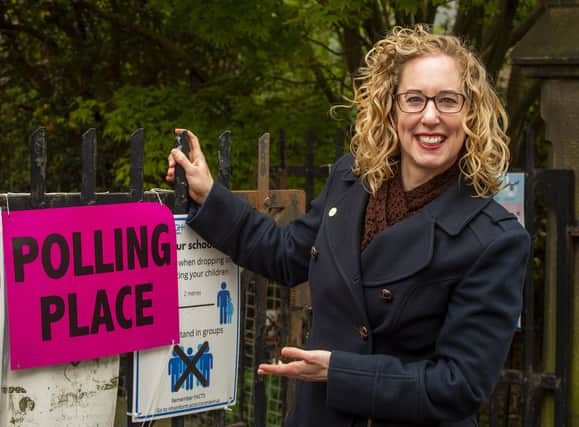Small businesses are key in our post-Covid city recovery - Lorna Slater


The death of retail giants like Debenhams is keenly felt in smaller towns and on Princes Street. Yet in Edinburgh it’s also noticeable in some of the major arterial routes into the city centre like Clerk Street places where small businesses have been allowed to thrive.
We need to rethink our town centres and major streets to reflect the fact that people’s behaviours have changed. That means recognising that people increasingly go to these places for an experience, to socialise, to eat, to discover new things. After 15 months of being deprived of such things, the appetite for these things is even greater.
Advertisement
Hide AdAdvertisement
Hide AdI’ve been really impressed by the resilience of Leith during this. Yes, the loss of some much-loved restaurants and shops have been a huge blow, but we’ve also seen independent businesses moving in to take those places. It was already a place that thrived on food and drink, and has been well known for some of the small independent shops too.
We need to support this in the recovery, so our places are safe and pleasant to be in. That means allowing creativity to flourish, giving communities a greater say over developments and importantly, giving priority to people over traffic.
If we are to recognise that people want to go to these places for the experience of it, then we need to also recognise that unsafe roads and illegal levels of pollution spoil that experience.
I was struck by images shared on social media this week of Amsterdam in the 1970s – roads choked with cars, traffic accidents peaked and the city was under the thrall of the hegemony of the car. Of course, Amsterdam is now famously known as the city of the bicycle, with cafes with tables outside lining the canals, but the pictures of the 1970s version, with several lanes of immobile traffic, reminded me of Edinburgh now. They could have been the Bridges, or Lothian Road.
Advertisement
Hide AdAdvertisement
Hide AdLeith walk is well on its way to café culture, with one pub suggesting pedestrianising part of it during COVID restrictions to accommodate the outdoor tables. Let’s make that shift, and support those businesses.
It’s clear as we reopen from the pandemic that small businesses are key to a green recovery. It is they who will need supported in the high streets of the future, not the shopping giants who have lost the war with internet commerce.
It is the cafes, restaurants, pubs, galleries, independent and boutique shops, specialists who can provide advice and recommendations, who can offer you a taste of something new, these are the places which provide the human contact we have all been missing, and who will drive our recovery.
What’s more, big business often carries an enormous environmental cost, while small businesses are more agile, and able to focus on sustainability without the insatiable appetite for rapid growth. Let’s give them the safe and clean spaces to thrive. It’s better for businesses, the economy, health and of course the environment.
Lorna Slater is a Green Party MSP for Lothian region a